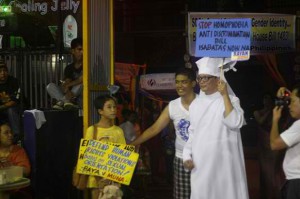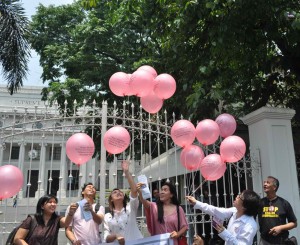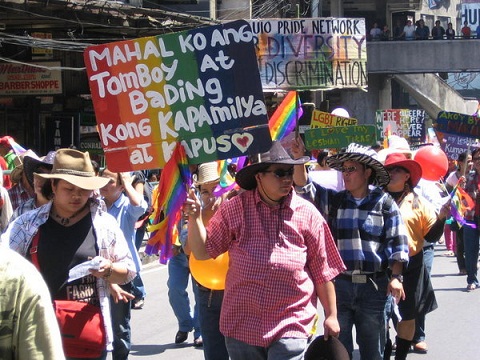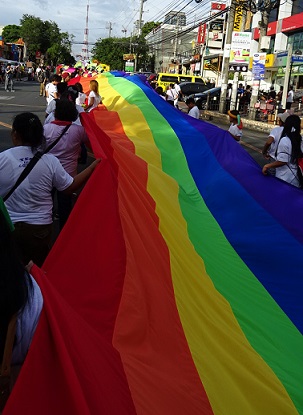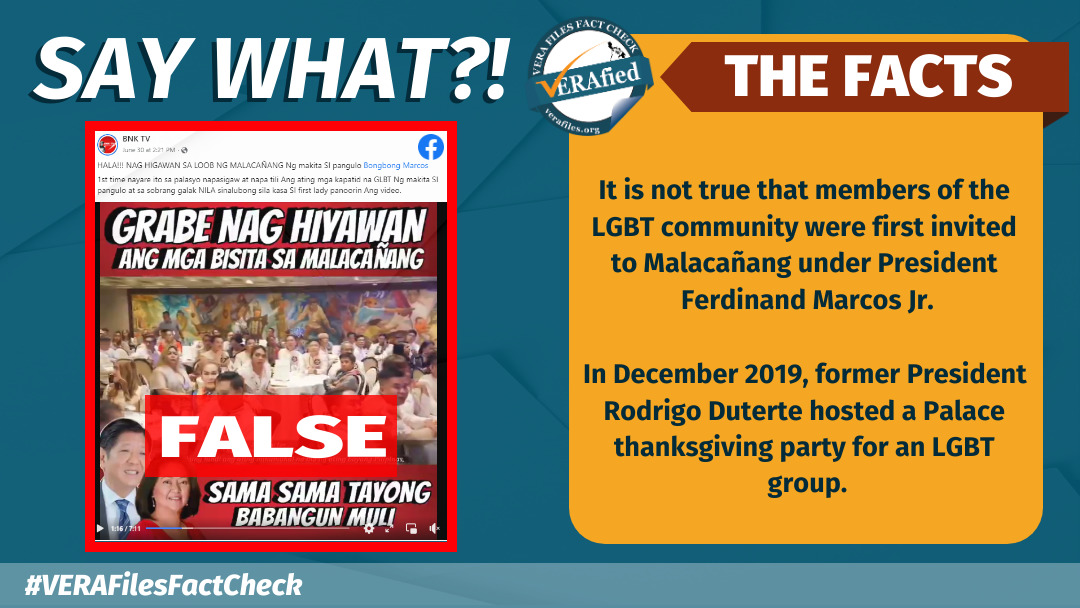By PATRICK KING PASCUAL
 HIS name was Carlos Canlas. He was 29 years old and gay.
HIS name was Carlos Canlas. He was 29 years old and gay.
He was found dead inside a rented room in a resort hotel in General Santos City. He bore multiple stab wounds on his body and face which made him unrecognizable.
It happened early May this year. Carlos checked in at the resort hotel alone. Two men were spotted entering his room after a few hours.
According to the hotel security, several minutes before they found Carlos, 10 boys rushed out of his room. It was also reported that several pieces of jewelry and P40, 000 cash were stolen from him.
After initial investigations, the police dubbed it as plain robbery and homicide.
A blogger from General Santos posted on his site: “My researcher friend went to the police station to interview the local police about the murder of Carlos. They told him the same story they told media, and added: ‘Hindi siguro nagbayad ng maayos dun sa dalawang lalake kaya ninakawan at pinatay. Baka hindi kaagad maproseso ang kaso nito (He might not have paid enough so he was robbed and killed. His case might not immediately be processed).’ The police looked away and smirked.”
In 2009, Winton Lou Ynion, a Palanca awardee, was found dead in his condominium with his hands and feet tied. His body and face bore multiple stab wounds.
It happened after Winton took home two guys. Investigators said the case was plain robbery and homicide.
When a group of advocates followed up the status of Winton’s case, the answer they got was: “Sir, may mga kaso na mas priority, kaya yun ang inuuna. Baka tulad din yan ng ibang mga kaso dati, hindi nagbayad sa lalake kaya nangyari sa kanya iyon. Balik nalang kayo (Sir, there are more priority cases so they are being acted upon first. This might be just like similar cases where the victim did not pay his male visitors. Just come back).”
Both Carlos and Winton were gay.
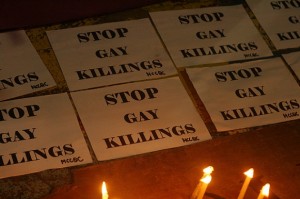 There are several recorded crimes involving lesbian, gay, bisexual, and transgender (LGBT) that followed the same pattern as that of Carlos and Winton’s. Majority of these are still unresolved.
There are several recorded crimes involving lesbian, gay, bisexual, and transgender (LGBT) that followed the same pattern as that of Carlos and Winton’s. Majority of these are still unresolved.
There is still no law that can assure LGBTs equal treatment in pursuit of justice.
The Anti-Discrimination Act of 2010 (House Bill 1483), filed by Rep. Teddy Casino of Bayan Muna in August last year, remains pending in Congress.
HB 1483 seeks to protect the LGBTs against unlawful discriminatory acts in employment, education, health services, public service (including military service), commercial and medical establishments, including police and military harassment.
What happened to Carlos and Winton was a clear case of discrimination as defined by HB 1483, or the LGBT Rights Bill.
Pending the passage of HB 1483, LGBTs have to deal with discrimination every day without legal protection as seen in the following cases.
Bemz Benedito, chair of Ladlad Partylist, was denied access to the female area of Wensha Spa because she is a transgender. The spa administrator claimed that being a male, Bemz she should stay in the male area. Bemz told them that she considers herself a female and that should be respected. Wensha refused to bend its rules and still enforced the spa’s policy.
Jed Tanjutco is a local airline employee in his mid 30s. While looking for a place to eat during a night out in Malate, Jed and his friends were arrested by policemen who accused them of being male prostitutes cruising for customers. The police asked each of them to pay P1,000 pesos in exchange for their freedom. Jed and his friends had no choice but to give the police P3,000.
A 25-year-old HIV-positive gay was refused in a hospital in Manila. He went there to consult his recurring cough. Hospital personnel told him they do not admit gay HIV-positive patients. He left and went to a different hospital.
Section 4, Article E of the Casino bill makes it punishable to deny access to medical and other health services open to the general public on the basis of such person’s sexual orientation or gender identity.
HB1483 ensures equal rights, not special rights, for LGBTs.
While the LGBTs’ situation has improved since the unenlightened days of long ago, it can still be a lot better if HB1483 is passed into law.
